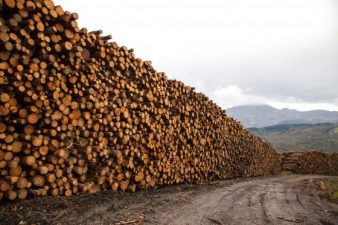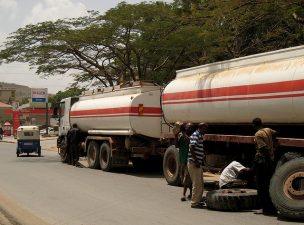 Turkey has started exploratory drilling for oil and gas in the town of Iskele in northern Cyprus (red arrow), angering the government of the Greek-controlled southern region.
Turkey has started exploratory drilling for oil and gas in the town of Iskele in northern Cyprus (red arrow), angering the government of the Greek-controlled southern region.
The Turkish Petroleum Corporation began onshore drilling operations on April 26 at a 3,000-meter-deep well, named “Türkyurdu-1” (“Turkish Homeland”), which Turkish Energy Minister Taner Yıldız called a “force for peace in Cyprus.”
So far, however, the well has proven to be just the opposite.
Battle for gas exacerbating hostilities over divided island
A race is underway for access to the hydrocarbon resources of Cyprus.
The competitors are the Turkish Republic of Northern Cyprus (TRNC), which fell under Turkish control in 1974 but is now only recognized as an independent country by Turkey itself, and the Republic of Cyprus, which is controlled by a Greek Cypriot government and has membership in the European Union.
When U.S. firm Noble Energy found large reserves of natural gas off the coast of Cyprus last year, Turkey asserted its right to also drill for the precious fuel in the onshore and offshore areas of the TRNC. The Republic of Cyprus refused, but Turkey has now proceeded anyway.
Turkish Energy Minister Yıldız has said the well is the first of many, and will conduct exploratory drills for the next three to six months. Despite Yıldız’s words about peace, Turkey has been openly hostile toward the Cypriot Republic since it negotiated deals with Israeli companies for extracting and producing the gas reserves discovered by Noble.
Spokesmen for the Greek foreign ministry called Thursday’s action by Turkey “illegal”, saying it highlighted that Turkey’s involvement in Cyprus is “an issue of invasion and occupation,” according to the BBC.
What’s at stake
The Republic of Cyprus is currently facing an economic and energy crisis within its borders. The country is struggling to meet the energy needs of its population, especially since an accident last July seriously damaged its main power station.
The TRNC, meanwhile, enjoys substantial support from Turkey, which has not had much trouble keeping up with its own rising domestic energy demand. But more than 90 percent of Turkey’s primary fuel supply is imported, a fact reflected in what may be the world’s highest gasoline prices. So Turkey and the TRNC are also very eager to claim new oil and gas discoveries as their own.
On Thursday, Turkey also announced that twelve international companies are interested in joining the Turkish Petroleum Company’s exploratory activities in Iskele and at future wells, whose locations have not yet been disclosed.
One thing is certain: a new hydrocarbon race will almost certainly heighten tensions between the TRNC and the Cypriot Republic, no matter what Turkish officials claim.
:: BBC
Read more about Turkey’s energy politics:
Natural Gas Creating New Axes of Alliance Across Mediterranean
EU’s Planned Nabucco Gas Pipeline To Be Displaced By Russian Project
Where Can You Find the World’s Most Expensive Gasoline? Probably Turkey.
Image via ephotopix



